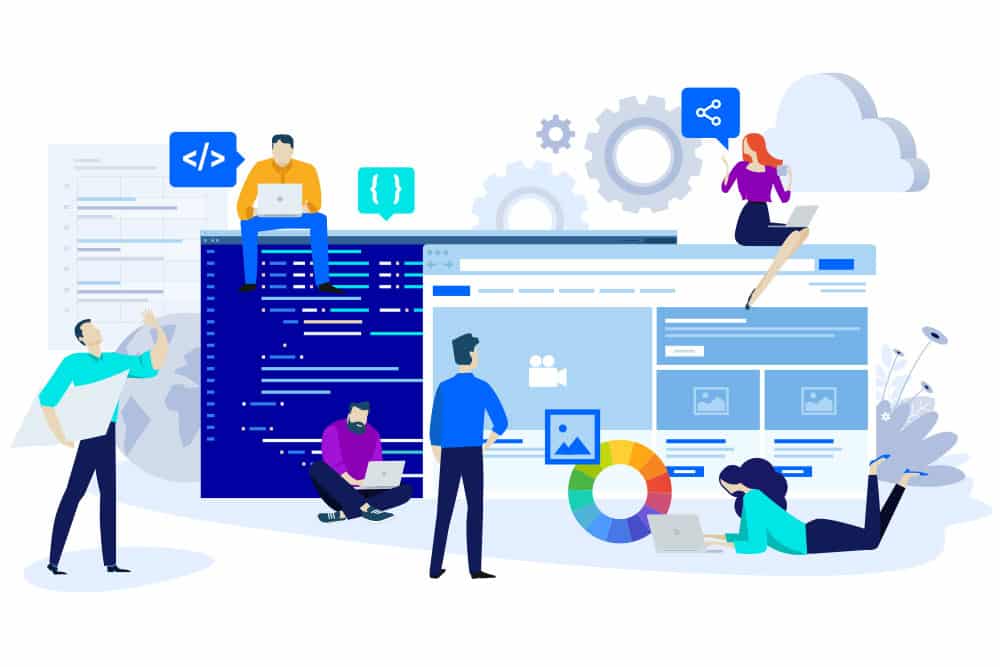Modern businesses face constant demands from customers, suppliers and employees. Better experiences, new products, faster service and lower cost. This can place a huge strain on existing IT systems, some of which have been in place for decades.
A key factor in doing business better and faster is being able to connect all parts of the business to share and use the data you have worked so hard to collect. A so-called “data-driven business” that can make well-informed decisions quickly, and connect with third parties, including suppliers, customers, logistics providers and others. Thanks to APIs (application programming interfaces), this can be done without breaking the bank.
The rise of the API economy
Deloitte says the rise of the API economy is as transformative to business as the introduction of the assembly line and standardized parts was to manufacturing. APIs are now a strategic imperative, used by global leaders such as Amazon, Coca-Cola and Microsoft. One doesn’t need to be a multi-billion-dollar company to benefit from APIs, though. For companies of all sizes they can be instrumental in driving a profitable company.
Air Malta is a good example. The company found itself consistently running at a loss, year after year. But thanks to its strategic use of APIs, it turned its first profit in 18 years, going from a loss of €10.8 million in 2017 to a profit of €1.2 million just one year later.
To compete against the big players in the airline industry, Air Malta chose to embrace the API economy. In an API economy, APIs are the connective tissue between organizations and their customers, partners and suppliers. They enable innovation and growth through the development of new channels, products and services.
The airline industry adopted cross-company collaboration years ago with the introduction of code-sharing. Airline partnerships, such as Star Alliance and oneworld, allowed customers to book a trip through just one airline even if multiple airlines provided the actual flights.
The downside was that making the varying back-end servers exchange information was expensive and difficult. That’s where APIs make the difference. They make it faster and easier to connect. For example, when Ryanair began listing Air Malta flights on its website, the integration of the back-end tech took only 11 weeks.
The API shift
In addition to making it easier to connect to partners, APIs allow businesses to connect more easily to cloud-based software handling different parts of the business. For Air Malta, that includes flight operations, reservations, customer management and more
The great advantage of using APIs over older ways of collaborating is that they can be reused with different partners and different use cases. APIs mean there’s no need to re-invent the wheel every time you want to set up new partnerships, allowing organizations to stop thinking in terms of projects, and instead think in terms of functions. The same APIs used to share data and run processes internally can be used to exchange data with third-party applications, such as SAP, Salesforce and others.
The secure exchange of data in the API economy allows organizations to move quickly, and embrace new opportunities economically. It allows better insights and oversight, breaking down silos to allow companies to unlock the value of their data. It enables fast, secure access to goods and services for customers, and allows small companies to take an active role in digital ecosystems as equals with larger partners.
Perhaps the most exciting thing about APIs, and what may be their greatest value, is not what they let you do today, but the possibilities they will enable in the future
Consider companies that base their business on a particular technology. A decade ago, car service or taxi companies were the primary mode of vehicle-for-hire transportation. Now, these companies have experienced significant disruption with the entrance of ride-hailing and ridesharing companies like Uber and Lyft. In this revolutionized market space, car service companies like Addison Lee have had to transform their business models and turn to APIs and cloud-based offerings to remain competitive. This is how companies like Addison Lee can offer the level of service their customers have come to expect while also providing the flexibility and experience of their API-enabled competitors.
What is the lesson? That your business is your business—not the way you do business.
If you’re looking for ways to take your place in the API economy, let’s talk about the possibilities.



